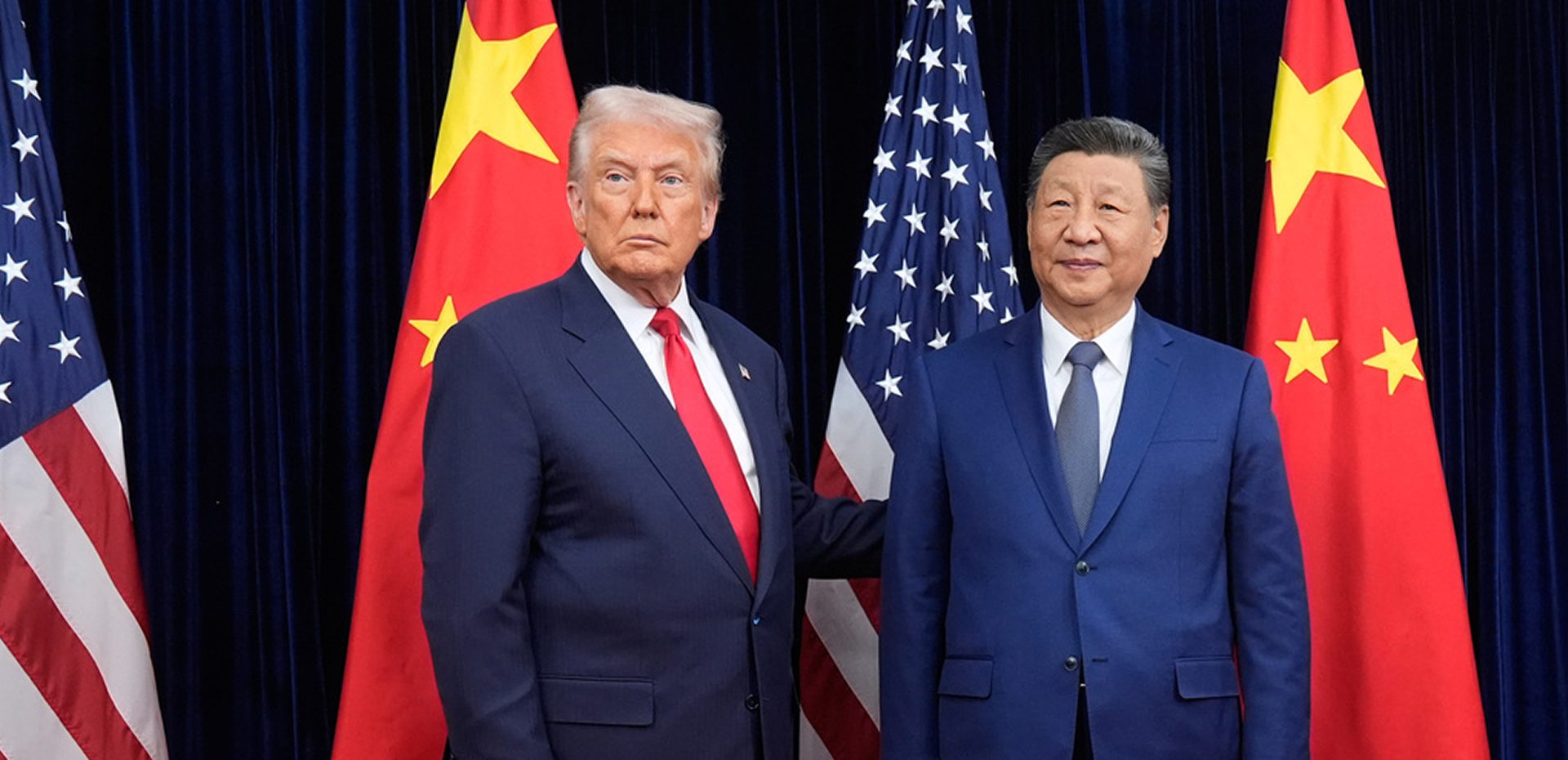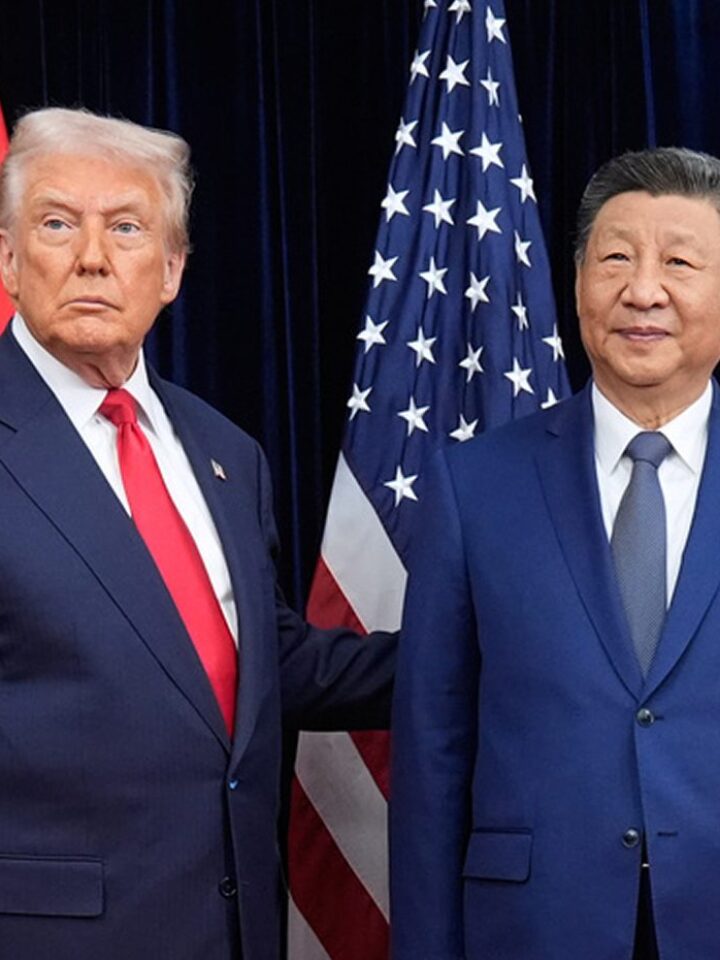Russia faces mounting external and internal pressures. A potential improvement in US-China relations could prompt Beijing to push Moscow towards a Ukraine ceasefire, thus exposing the Kremlin’s dependence on China and leaving its maximalist demands unmet. Against a backdrop of growing international isolation, war fatigue is deepening at home, while new – albeit limited – forms of grassroots self-organisation are emerging, reflecting the gradual erosion of social consensus. Slightly more cheeringly, from a regime perspective, the impact of new US energy sanctions will be limited due to sustained demand for Russian oil, the challenges of enforcement, and well-developed circumvention schemes.
Putin’s worst-case
The Donald Trump-Xi Jinping meeting in South Korea on 30 October sent an alarming signal to Moscow: for the first time, the issue of Ukraine was discussed at the highest level without Russia’s participation. In the Kremlin’s view, this marks a loss of influence and risks making it a deal-taker rather than a deal-maker (this mirrors its sustained efforts to exclude Ukraine from negotiations on its future).
Beijing’s stance has become a key factor in any potential peace talks, as Moscow’s dependence on China is now deeper than ever. Since 2021, the share of Russian energy exports going to China has risen from 28 per cent to over 50 per cent. China’s role in sustaining Russian imports is equally critical: the vast majority of materials and equipment for the defence industry, electronics, passenger cars, communications systems, and consumer goods are now sourced there. Should Beijing partially accommodate the US proposals – by cutting oil purchases, limiting supplies, or exerting diplomatic pressure on Moscow – this could deliver a serious blow to the Russian economy and weaken its ability to make peace on its terms.
For Putin, this represents the worst possible scenario. The mere fact that the question of Ukraine was discussed not between Washington and Moscow, as in the past, but between Washington and Beijing underscores Russia’s loss of status. A country that once considered itself among a handful of truly global powers, has now become the object of negotiations between the two genuine superpowers. This undermines the Kremlin’s self-image of Russia as an independent centre of power and exposes a tangible shift in the balance.
While no concrete agreements between Washington and Beijing on Russia have yet been reached, the prospect was enough to encourage the Kremlin to renew its nuclear table-thumping. During his visit to Washington on 24 October, special envoy Kirill Dmitriev conjured up the prospect of ‘the complete annihilation of humanity’, while Putin personally promoted the Poseidon nuclear-powered torpedo – a characteristic display of strength at a time of uncertainty.
Russia’s social dynamics: War fatigue and emerging grassroots activism
Alongside external shocks, war weariness is deepening within Russia. Since the late summer, approval and trust ratings for Putin have fallen by several points. At the same time, public resentment is growing over the return of participants in the ‘special military operation’, many of whom are seen by society as potentially dangerous.
With good reason. Russian servicemen returning from the front are increasingly appearing in crime reports. According to media estimates, by the end of February around 750 civilians had fallen victim to veteran violence: at least 378 were killed and another 376 seriously injured. Surveys indicate that 39 per cent of Russians expect a rise in crime and social tensions linked to the return of ‘special military operation heroes’.
Since February 2022, Russia’s civil society has been effectively dismantled. The adoption of laws on the ‘discrediting’ of the army and on ‘false information’ about the war, carrying sentences of up to 15 years in prison, has in practice outlawed any discussion of the conflict beyond official rhetoric. Since the invasion, more than 20,000 people have been detained for anti-war protests, and the number of political prisoners now exceeds 1,500. Independent media outlets have been shut down or have fled abroad, while hundreds of journalists, human rights defenders, and politicians have been designated as ‘foreign agents’, effectively barring them from their professions.
A telling indicator of the regime’s growing nervousness is the case against the Anti-War Committee of Russia (AWC) – an organisation outside Russian founded by a group of exiled Russian public figures to oppose the Putin regime and the 2022 all-out invasion of Ukraine. Its members – prominent opposition politicians, lawyers, and journalists – have been charged with ‘establishing a terrorist organisation’ and ‘attempting to seize power by force’. The formal pretext for the case was the creation of a Russian opposition platform at the Parliamentary Assembly of the Council of Europe, which the Federal Security Service (FSB) regards as a fledgling government in exile.
Despite intense repression, moderate forms of self-organisation are beginning to emerge. Young people, long considered apolitical, are showing small yet visible signs of solidarity and collective action. A telling example is the case against the street music group Stoptime. The musicians performed covers of artists designated as ‘foreign agents’ – effectively banned in Russia – and their improvised street concerts drew dozens of spectators. After pro-government media reports, the group’s members were stopped and detained, and some were charged with ‘discrediting the army’.
The response was a large-scale online campaign in support of the musicians. That was remarkable given police pressure and tightening digital isolation.
This episode illustrates a broader trend: even limited and local acts of public dissent are evolving into elements of horizontal mobilisation that extend beyond traditional political activity. For now, these outbreaks remain localised and containable – the system still suppresses protests effectively and maintains control over the flow of information- yet their very emergence signals the gradual erosion of the previous social consensus.
Sanctions: Harsh words, no impact
Against this backdrop, the sanctions introduced last week by the Trump administration have been overshadowed. Despite strong US rhetoric, it is too early to assess the effectiveness of the new measures directed against Rosneft and Lukoil – companies that together account for almost half of Russia’s oil exports.
China and India, now the main buyers of Russian oil, have declared their readiness to reduce purchases and comply with the measures. Yet the market’s initial reaction was muted: oil prices rose by around 5 per cent on the day of the announcement, then slipped slightly. If the price moves further upward by the time the sanctions take effect on 21 November, it will signal that the restrictions are indeed working. However, their consequences will extend beyond Russia and hurt the global economy.
The key issue is limited global supply. The potential loss of up to 5 million barrels of Russian crude and 2 million barrels of petroleum products per day would be difficult to offset; even if all other OPEC+ members were willing to boost production, they would be unable to cover the shortfall in full.
The position of Saudi Arabia – a central actor in the oil market and the de facto leader of the cartel – is particularly important, and its capacity to increase production could offset at least some of the shortfall if Russian barrels are taken off the market. Notably, Crown Prince Mohammed bin Salman is due to visit Washington on 18 November.
The Kremlin hopes that the leverage of Washington’s sanctions over the Saudis and other oil nations is limited and that the economic pressure can be weathered. Russia possesses extensive mechanisms to circumvent restrictions: Indian importers have already indicated that some shipments will continue through intermediaries, and on 31 October India’s largest oil refiner, Indian Oil Corp., purchased five cargoes of Russian oil from companies not subject to the new measures. While Chinese state-owned enterprises with Western shareholders may indeed scale back imports, smaller firms not exposed to international markets are likely to continue buying.
According to media reports, Russian oil was not among the primary topics discussed in the Trump-Xi meeting last week, which leaves very little hope that the US administration is ready to impose secondary sanctions on Chinese banks and companies. Without pressure on China and India, sanctions against Russian oil remain rhetorical.

